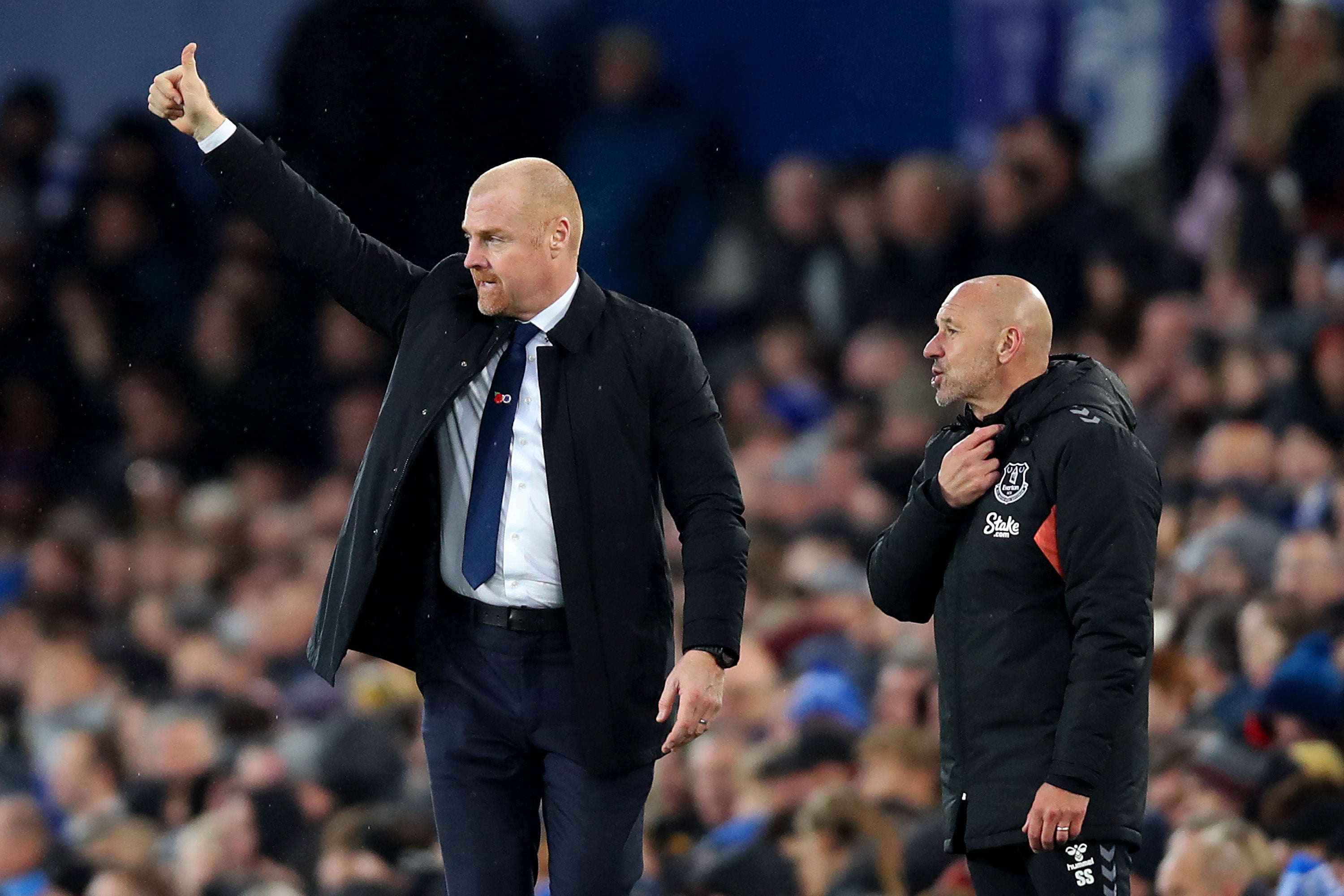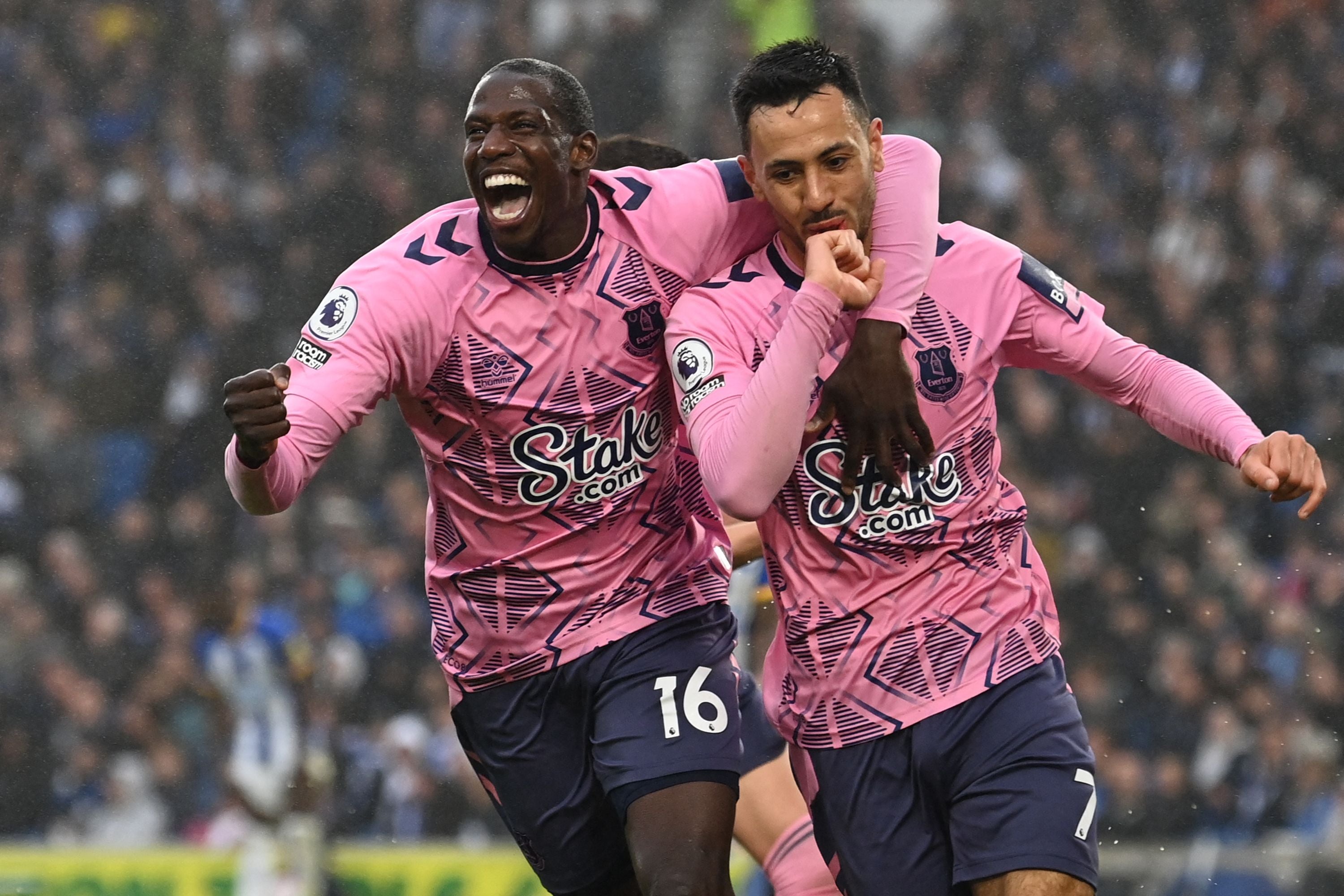How the Farhad Moshiri era left Everton languishing on the brink of ruin
The British-Iranian businessman has invested a lot of money into the club but the mismanagement of finances has left the Toffees in a precarious position
It was the sort of comment that might have been made in recent seasons when Everton were found in the relegation zone. “The position Everton finds itself in is of its own making,” came the damning conclusion. Except that this was the independent commission’s verdict on their financial position, referencing losses that topped £300m in three years and – crucially – where they were deemed to have lost £124.5m under the Premier League’s Profit & Sustainability rules, £19.5m more than permitted.
Deducted 10 points as a punishment, the position Everton find themselves in now is 19th, level on points with bottom club Burnley. Privately, Sean Dyche may note they are still above his former employers, even though Vincent Kompany has spent the kind of sums he was never afforded. If 38 points became a footballing cliché, a byword for safety, Everton, who only actually mustered 36 last season, may have to target 48 this year.
There have been times in recent years when relegation felt the logical conclusion of Farhad Moshiri’s reign of incoherent ambition and incompetent execution; until a swingeing ruling, perhaps few thought it would happen quite like this. If a pragmatic view might be that this is the best season to take a 10-point hit – earn 40, see it reduced to 30 and it might still be enough this year – Everton may be able to harness feelings of injustice to galvanise them. Supporters are planning a protest for Sunday’s game against Manchester United. When Everton stayed up in 2021-22, including a memorable Goodison Park win over United, the fans were a huge factor, the 12th man at times compensating for the shortcomings of the first 11.

That was a season when Everton budgeted to come sixth. It was one of the damning details revealed in the ruling. Moshiri had apparently referred to the club’s “non-existent midfield”. Perhaps it suggested he had more skills as a pundit than a majority shareholder. Because, to take a step back away from arguments about the elements that tipped Everton over the £105m mark, as to whether interest repayments counted as infrastructure spending as they are building a new stadium, if the sanction should have come in the form of a points penalty, and the initial losses came from a wage bill that ballooned and heavy transfer outlay. Everton’s new ground at Bramley-Moore Dock will cost £760m; almost as much has been paid for players in Moshiri’s seven-year reign – albeit offset by those sold and, increasingly impoverished, they are in profit in 2023 – and until Chelsea last season, never had a club had spent so much to achieve so little.
The side that Dyche has led to six wins in nine games shows less evidence of lavish outlay and more of the kind of principles Everton ought to have had all along. Of the 11 who began the victory at Crystal Palace, which had elevated them to the seeming safety of 14th, there were two free transfers (James Tarkowski and Ashley Young), one loan (Jack Harrison) and a pair picked up as teenagers for about £3m between them, in Dominic Calvert-Lewin and Jarrad Branthwaite. Of those signed in their early twenties, James Garner could be a stalwart of the side for years and Amadou Onana might produce a sizeable profit. Among the bigger buys, Jordan Pickford has been Everton’s outstanding player of the last few years. Abdoulaye Doucoure got the goal that kept them up last season. Dwight McNeil has produced the best form of his career in 2023.

Dyche’s starting 11 cost about £120m. Everton can lament where much of the rest of the money went. There was the £25m spent on Jean-Philippe Gbamin, who started two league games. There was the January when, needlessly, they gave Sam Allardyce almost £50m for Cenk Tosun and Theo Walcott, who both left on free transfers. So did Allan, a £25m buy who at least started well for Carlo Ancelotti but who Frank Lampard concluded could not run.
There is the summer that was infamous for buying three No 10s – Gylfi Sigurdsson, Wayne Rooney and Davy Klaassen – although, given Nikola Vlasic’s preferred position, it was arguably actually four. Vlasic started seven league games for Everton, Klaassen three; both left at a loss. More recently, there was James Rodriguez, paid £250,000 a week but whose knees did not agree with the Goodison Park turf. There were those who were unlucky with injury, like Yannick Bolasie, Yerry Mina, Andre Gomes and Fabian Delph, but who ended up delivering too little. There were those who delivered virtually nothing, such as Sandro Ramirez, Salomon Rondon and Henry Onyekuru. There were the early expensive mistakes, like Ashley Williams and Morgan Schneiderlin, and the more recent errors, like Neal Maupay. There were the pay-offs to the managers, each seemingly designed to be the opposite of his predecessor.
And now, when the proposed takeover by 777 Partners could bring the Moshiri era to an end, there are the stings in the tale: the loss of 10 points earned by Dychean grit and an unexpected attacking threat, the potential legal action from clubs who went down as Everton stayed up.
When Moshiri’s reign threatened to bring ruin before, it seemed it was because he was trying to appoint the undistinguished Portuguese manager Vitor Perreira or to bring in Marcelo Bielsa, who was only willing to coach the Under-21s while the first team was in a relegation battle. Now the Moshiri years have given Everton a different kind of existential threat.
Join our commenting forum
Join thought-provoking conversations, follow other Independent readers and see their replies
Comments
Bookmark popover
Removed from bookmarks